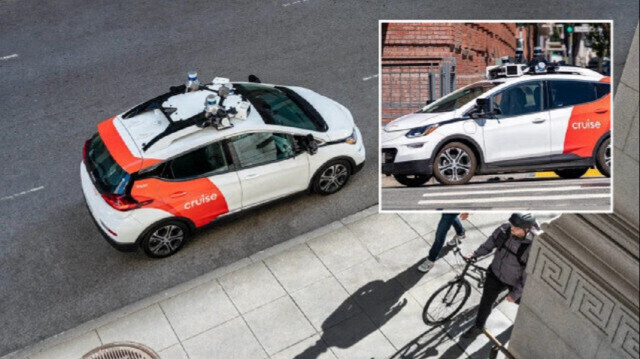
The greenlight for an increased deployment of robot taxis in San Francisco, USA, took a chaotic turn as 10 autonomous vehicles lost internet connectivity the day after approval, causing substantial traffic congestion.
An internet outage in San Francisco, occurring right after the approval for expanded robot taxi operations, led to the immobilization of ten autonomous taxis, resulting in severe traffic congestion. The incident unfolded following a concert, where users hailed numerous robot taxis operated by the Cruise company to the area, overwhelming the network and causing connectivity issues for the vehicles. In the aftermath of the incident, the company issued a statement attributing the vehicle malfunction to the post-concert surge in cellular activity, emphasizing their ongoing efforts to rectify the issue. Eyewitnesses reported that the 10 robot taxis became trapped in two narrow streets.
Local resident Jeffrey Bilbrey expressed worry over the potential dangers posed by the immobilized robot taxis. He noted that the taxis' inactivity could hinder emergency response vehicles from accessing streets, which might have dire consequences in critical situations. Eyewitnesses reported the taxis being stranded for around 15 minutes, exacerbating the traffic congestion.
Inspector Aaron Peskin engaged with the company responsible for the robot taxis, revealing their plans to establish a dedicated network to prevent similar connectivity disruptions in the future. San Francisco, with nearly 600 self-driving vehicles, serves as a testing ground for autonomous technology in the United States. The city aims to draw valuable insights from real-world experiences involving these vehicles, highlighting the importance of cooperation between corporations and the public interest. Since the beginning of 2023, the city has recorded 55 accidents involving autonomous vehicles, emphasizing the need for continuous evaluation and improvement of autonomous vehicle systems.
Hello, the comments you share on our site are a valuable resource for other users. Please respect other users and different opinions. Do not use rude, offensive, derogatory, or discriminatory language.
The floor is all yours.








